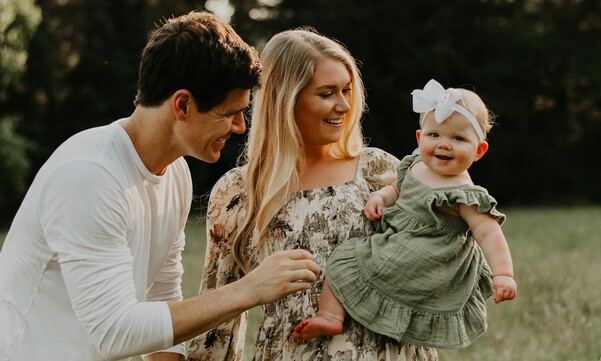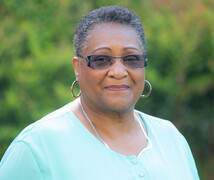A stroke was the wake-up call that Jess Phair needed to stop smoking cigarettes. Duke’s Smoking Cessation Program provided a customized approach to help the Cary, NC resident break her physical and behavioral addictions to smoking. Phair went her first day without a cigarette two months after her first appointment in December 2022. She hasn’t smoked since and credits her success to Duke. “They supported me in ways that I didn’t even know I needed,” she said. “There’s no way that I could have done this without them.”
Getting Into the Habit
Phair started smoking when she was 18 years old. Close friends and family knew, but Phair mostly kept her pack-a-day habit a secret. Smoking isn’t cheap, and it limited how she traveled and where she could stay. Phair wanted to quit but felt it was impossible.
Health Scare Offers New Motivation
Shortly after her 40th birthday, Phair was driving to work when her left arm started to feel strange and tingly. As she stepped out of her car, her left leg buckled beneath her. She called 911 and was taken to Duke University Hospital’s emergency room. Doctors told Phair she was having a stroke caused by a blood clot in her brain.
It is extremely likely that smoking was at least partly to blame. “Generally, people who smoke are two to four times more likely to have a stroke than those who do not smoke,” said Duke tobacco cessation specialist Autumn Konz, PA-C. That’s because toxic chemicals in cigarettes make blood more prone to clotting as well as increase plaque and inflammation, which narrows and weakens blood vessels.
Doctors administered thrombolytic medication to dissolve the clot. That stopped Phair’s symptoms, and she made a complete recovery. Phair was lucky, but she knew she needed to make a change. “In that moment, I was done with the smoking,” Phair said. “I was ready to do whatever I had to do.”
Finding Support at Duke
Phair’s doctor referred her to the Duke Smoking Cessation Program, where she met Konz and Megan Keith, a clinical social worker and fellow tobacco cessation specialist. Konz prescribed medications that muted Phair’s neurochemical response to nicotine, so it became less pleasurable. Konz also recommended nicotine-replacement products to help alleviate the physical symptoms of nicotine withdrawal. Keith helped Phair recognize how habitual her smoking had become. Keith also taught Phair mindfulness techniques and practical tactics for overcoming cravings.
“They were my accountability partners,” Phair said. “I knew I was going to meet with these ladies at the end of each week, and I didn't want to let them down because they were rooting so hard for me. I can't tell you how much that helped.”
The First Zero Day of Many
One morning in February 2023, Phair woke up and realized she had gone more than 24 hours without smoking. She called it her first “zero day.” “That had never happened to me in my entire adult life,” Phair said. She still has powerful cravings, and some days are more difficult than others, but Phair has remained completely smoke-free since that day in February.
According to Keith, Phair’s experience isn’t exactly typical. “Most people try to quit seven or more times before they're successful. And it's common to have slips in the first month of quitting,” Keith said. “Jess jumped right in with everything we suggested to her. She really hit the ground running. And I think that's why she was seeing results so quickly.”
Since quitting, Phair has started to reclaim things smoking took from her. Her health has improved, and she has gained back hours in her day that she used to spend smoking. She’s also saving the money she would have spent on cigarettes for an upcoming trip to Hawaii -- one that requires a long, smoke-free flight.
Quitting is Hard, Duke Can Help
Success rates for people who try to quit smoking on their own are only 3% to 5%.1 According to Keith and Konz, success rates with Duke’s program are 35% to 40%. Phair encourages others who want to quit to seek out a tobacco cessation program like Duke’s.
“If you had told me last year that I would be three months without a single cigarette, I would've laughed in your face and said that it's absolutely impossible. But because of the systems that the Duke providers put in place for me, not only did that happen, but it happened faster than I think any of us could have hoped for."
Ready to Quit?
Call 919-613-7848 (919-613-QUIT)




